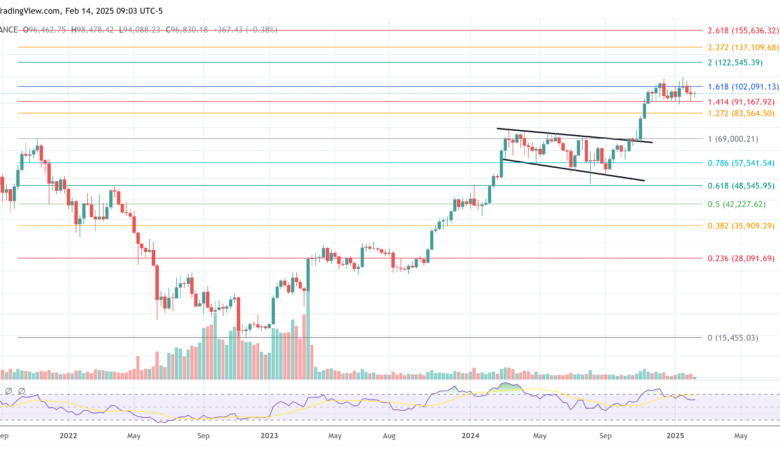
Understanding El Salvador’s Updated Bitcoin Law: A Paradoxical Stance on Legal Tender
Samson Mow’s Insights on El Salvador’s Bitcoin Legislation
Samson Mow, the CEO of JAN3, has provided an in-depth analysis of the recent modifications to El Salvador’s Bitcoin Law, revealing a complex situation regarding Bitcoin’s status as legal tender in the country. Despite the government’s assurances that “everything is awesome,” Mow advises caution. He highlights that while Bitcoin retains its legal tender status, its classification as a “currency” has been altered, creating a paradox where Bitcoin is both recognized and not recognized as legal tender.
The Paradox Explained: Bitcoin’s Dual Status
According to Mow, the original Bitcoin Law remains intact, but changes have removed official references to Bitcoin as a “currency,” making its use voluntary. Mow notes, “It is defined as legal tender but lacks the essential attributes of legal tender.” He references Article 1, which omits the term “currency” and allows businesses to choose whether to accept Bitcoin. This change could reduce the incentive for large corporations, such as Starbucks or McDonald’s, to support Bitcoin payment systems, as its legal tender status was a key factor for compliance.
Article 3: A Shift in Bitcoin Pricing
In Article 3, the previous allowance for prices to be expressed directly in Bitcoin has been altered. Now, prices can “be converted into BTC,” rather than being quoted solely in Bitcoin. Mow points out that while most people convert fiat prices to Bitcoin for payments, the amendment might discourage clear Bitcoin pricing, indicating that official amounts may need to be stated in fiat before conversion.
Article 4: Tax Payments and Bitcoin
Furthermore, Article 4 eliminates the option of paying taxes in Bitcoin. Mow suggests this implies that the state might not accept Bitcoin for other official transactions, such as company registrations, passport programs, or the $12 tourist fee at the airport. Although the amendments don’t explicitly ban Bitcoin transactions in these areas, the removal of relevant text effectively disqualifies Bitcoin from being used for such payments.
Asset Over Currency: Article 5 and Capital Gains
Article 5 continues to exempt Bitcoin from capital gains taxes, aligning with the global perception of Bitcoin as an asset rather than a currency. This reclassification suggests that El Salvador views Bitcoin more as an investment vehicle than a form of money.
Government’s Role and Chivo Wallet
While citizens are technically allowed to use Bitcoin, Article 7 specifies that the Salvadoran government cannot engage with Bitcoin transactions, except for possibly holding it in reserves. The government is no longer obligated to facilitate Bitcoin transactions, potentially leading to the discontinuation or sale of Chivo, the state-supported wallet platform. Mow comments, “Chivo served as a vital bridge between fiat and Bitcoin, exposing millions to the cryptocurrency,” despite its frequent criticism for technical issues.
IMF Agreement and Bitcoin’s “Confined” Usage
Mow raises concerns about El Salvador’s agreement with the International Monetary Fund (IMF), which mentions Bitcoin will be “confined” without a clear definition. Although the Salvadoran government continues to accumulate Bitcoin in reserves, it’s uncertain whether this policy will persist or if it might be restricted under future IMF interpretations. Mow notes that many Bitcoin enthusiasts seek a more definitive answer than the vague assurance of “we’re still buying.”
Merchant Adoption and Political Influences
The future of merchant adoption remains uncertain. Businesses like Super Selectos, El Salvador’s largest supermarket chain, rely on Chivo for Bitcoin transactions. Mow warns that without Chivo, companies may face increased overhead costs if they adopt another wallet system, potentially reducing corporate Bitcoin adoption. He also touches on the political aspect, mentioning that Super Selectos is owned by Grupo Calleja, whose vice-president Carlos Calleja ran against President Nayib Bukele in 2019. While Mow doesn’t claim this political rivalry will end Bitcoin acceptance, he acknowledges it as a factor that might influence Bitcoin usage if it doesn’t generate substantial transaction volume.
The “Glass Half Full, Half Empty” Scenario
Mow describes the new voluntary legal tender designation as a “glass half full, half empty” situation. On one hand, El Salvador retains a Bitcoin Law, exempting Bitcoin from capital gains taxes and allowing the government to maintain reserves. On the other hand, the country’s approach is no longer unique. Other jurisdictions, like Prospera and Bhutan, recognize Bitcoin as legal tender or hold it as a reserve asset, potentially offering competitive conditions for Bitcoin enthusiasts.
Implications for Bitcoin Adoption
Many crypto enthusiasts relocated to El Salvador or established businesses there due to the initial clear directive for Bitcoin acceptance. However, the reclassification and unclear IMF commitments leave them questioning the durability of the country’s Bitcoin policy. Yet, Mow insists this isn’t the end of El Salvador’s Bitcoin experiment. “Bitcoin adoption is growing globally, and El Salvador played a role,” he asserts, adding that President Bukele “must prioritize what’s best for the country.”
JAN3’s Mission and Global Bitcoin Adoption
Mow also reveals JAN3’s mission, stating, “This is why I founded JAN3, focusing on promoting Bitcoin adoption among nation-states worldwide. We need a strong incentive structure where countries compete to out-Bitcoin each other.” He believes widespread Bitcoin acceptance can only be achieved through real-world use, whether grassroots or government-endorsed.
Conclusion: Evolution, Not Retraction
El Salvador’s recent amendments signify an evolution rather than a retraction of its Bitcoin Law. The changes aim to reconcile the country’s initial Bitcoin commitment with practical challenges, including collaboration with international lenders. The outcome is a scenario where Bitcoin remains legal tender, but the mechanisms for government and business interaction with it have been scaled back.
Future Outlook
For now, Salvadoran authorities seem satisfied to recognize Bitcoin as an asset and maintain reserves, while stepping back from obligations to accept Bitcoin for official payments and taxes. Observers and participants in Bitcoin’s global growth will watch closely how these changes unfold, particularly whether businesses continue supporting Bitcoin or begin to phase it out. Mow emphasizes, “Political parties change, laws can be amended. What truly matters is real Bitcoin adoption—whether top-down or grassroots, the ultimate goal is for people to understand and use Bitcoin.”
Current Bitcoin Market Status: At the time of writing, Bitcoin is trading at $96,830.
“`







